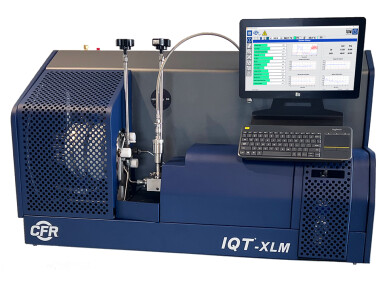Analytical Instrumentation
How Are Oil Companies Going Digital?
May 07 2019
Digital technology has transformed the face of countless industries and now oil and gas multinationals are taking the plunge. Driven by a need to maximise asset uptime and adapt to volatile markets, companies are investing in advanced, digitally-enabled technologies.
2019 brings a host of challenges for oil and gas companies, including instability surrounding pricing and demand. Many producers are scrambling to make the most of recessed capital expenditure investments, which means ramping up productivity and boosting utilisation is paramount. As a result, developing innovative digital technologies has emerged as a top priority. With many oil and gas companies reeling from a mass exodus of experts during the market slump, there's an exciting opportunity has emerged to replace conventional manpower with AI-assisted, technology-driven solutions.
Spotlight on data, analytics and machine learning
Data, analytics and machine learning are front of mind, with simulation modelling systems being used to help producers capitalise available assets and analyse different 'what-if' scenarios. The idea is to empower producers with the ability to adapt to volatile markets and create customised strategies for refinery planning, scheduling, maintenance and other core activities.
“The oil and gas sector is familiar with digitalisation, going back to the first automation of exploration data, processing plants, and refineries 35 years ago,” says Ron Beck, strategy director at US-based software development company, AspenTech. “The area that is giving traditional players in Europe and North America pause is how digital strategies will force ‘democratization’ of data and decision making."
Experts warn on tech incompetence
While change is on the horizon for the oil and gas industry, critics warn that the sector isn't equipped with the experience to harness the benefits. The learning curve is steep and trying to customise solutions without the right knowledge could ultimately leave companies lagging. Instead, Beck suggests oil and gas companies look beyond in-house developers and enlist the help of expert tech companies to bespoke, powerful technology that drives positive change.
“My feeling is that there is understanding of the base technologies, but not of how technology has rapidly evolved into easy-to-adopt solutions,” says Beck. “Some of the technologically strongly-heritage energy companies have made, in my opinion, the mistake of very heavily investing in staffs of data scientists with little domain knowledge."
For more insight on the latest oil and gas technologies don't miss 'ASTM D7220: Accurate and Precise Analysis of Ultra-Low Sulfur (ULS) in Automotive, Heating, and Jet Fuels', which spotlights the benchtop Energy Dispersive X-ray Fluorescence (EDXRF) S2 POLAR instrument.
Digital Edition
PIN 25.5 Oct/Nov 2024
November 2024
Analytical Instrumentation - Picturing Viscosity – How Can a Viscometer or a Rheometer Benefit You? - Sustainable Grease Formulations: Evaluating Key Performance Parameters and Testing Method...
View all digital editions
Events
Dec 03 2024 Dusseldorf, Germany
Dec 08 2024 Anaheim, CA, USA
Turkey & Black Sea Oil and Gas
Dec 11 2024 Istanbul, Turkey
Dec 19 2024 Aurangabad, India
Jan 20 2025 San Diego, CA, USA



















